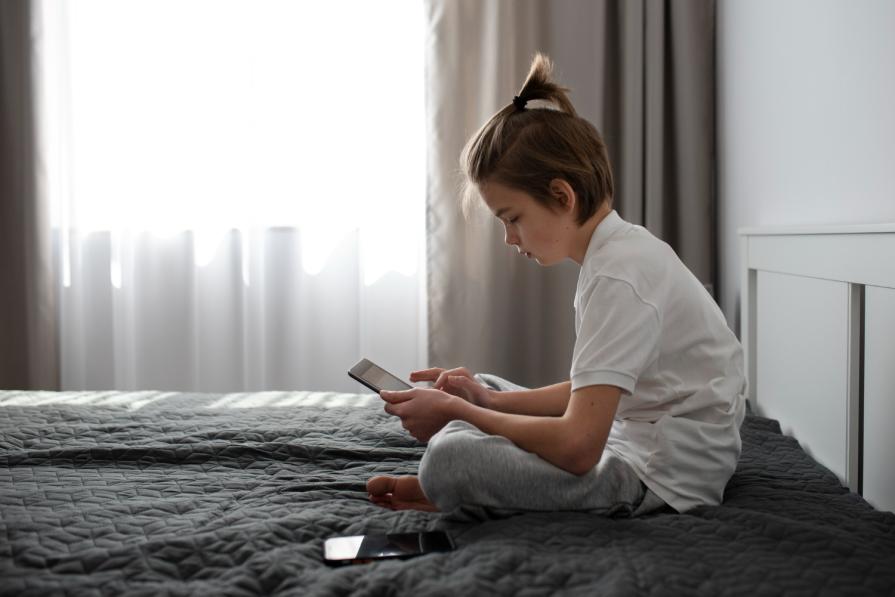Smartphones have long gone beyond simple means of communication: now it is a tool for work, entertainment, a source of news, an e-book, a camera for pictures. They have added convenience to our daily rhythm, but the constant attention to the screen for many becomes like a real addiction.
What is phubbing?
The situation when someone is constantly immersed in his mobile phone, even while in the company of friends or during a business meeting, is called "phubbing" (from the words phone and snubbing, which in English means "phone" and "ignoring", respectively). In 2012, the University of Sydney brought together professional philologists to come up with a definition for such a phenomenon. The term quickly gained popularity thanks to the Stop Phubbing campaign.

Unfortunately, over time, the problem has only worsened: the number of people constantly immersed in the smartphone screen is growing. Data from 2016 indicated that "phubbing" has a negative impact on the relationship between partners. A study conducted in 2019 by the scientists revealed that 75% of young people aged 17-29 constantly keep their phone at hand, 33% of them feel lost without their device. Interestingly, many do not consider themselves "addicted", however, they often become "victims" of excessive attention from others to their gadgets.
How can you tell if a person is developing a phubbing habit?
To understand that a person does not just have a tendency to look at the phone from time to time, but there are serious signs of addiction, you can pay attention to the following points:
- An irresistible craving for a smartphone. People who are peculiar to phubbing almost do not let go of their device from their hands - whether it's a lunch break, rest or a working day. They feel a constant need to browse news feeds, social networks, check messages and emails. Notifications become an excuse to immediately pick up the phone, regardless of the circumstances;
- distorted perception of time. Often these people do not realize how much time they spend, are busy with their gadgets, and cannot control this process;
- Without a phone, it's physically bad. When such a person does not have the opportunity to check the latest news or messages in instant messengers, he may physically begin to feel worse;
- obscuring other interests. What used to be interesting and occupied an important place in life becomes secondary or disappears altogether. The focus is only on the smartphone;
- awareness of the problem, but inability to overcome it. Usually, a person prone to phubbing is aware that his actions have crossed the boundaries of normal use of the device, but is not able to stop himself and continues to use it;
- absent-mindedness and lack of concentration when using the phone. When a person is immersed in the screen of his device, he loses the ability to concentrate on his surroundings, often does not respond to appeals and may not notice what is happening around him.
How Phubbing Affects Interpersonal Relationships

Dependence on the phone can be of varying severity, which directly correlates with how you can communicate with such a person. When attachment to a smartphone becomes irresistible, the device for a person displaces everything else: friends, emotional experiences, and even simple communication. The phone becomes the focus of his universe, all other aspects of life fade into the background, and this is especially painful for others.
Studies conducted in 2021 indicate that such behavior should be considered a social deviation, since it covers a wide range of people and contradicts the norms of society. The same publication emphasizes that dependence on the phone seriously reduces the quality of interpersonal relationships, generates problems in interaction, reduces the level of trust and empathy, and can lead to social alienation. This is not surprising: if a person becomes indifferent to others, others in response become indifferent to him.
How to start working on yourself?
The first and perhaps most important step is to acknowledge the problem. If the situation is not yet out of control, you can try the following methods:
- put your phone away while eating;
- avoid using a smartphone while communicating directly with people;
- limit yourself in time before you go to social networks or news feeds (you can set a timer). You can't make exceptions like "a few more minutes";
- strive to make your life more interesting by choosing activities that occupy your hands - from volleyball to needlework;
- Temporarily uninstall the apps that take the longest.

If the addiction has already passed into a serious stage, an appeal to specialists - a psychologist or psychiatrist - may be necessary.
How do you communicate with someone who is constantly busy with their smartphone?
If a person notices that a loved one is increasingly going into the world of his mobile device, even when he is next to others, the first thing to do is to talk openly about it, to share his feelings about this situation in a calm tone. And, of course, you need to be an example in this matter: keep your phone away when there is communication. It is necessary to avoid accusations and discontent; Understanding and patience are key factors, because it is not easy to give up a habit.
How to establish contact with a person addicted to the phone?
People with this addiction often become less attentive to the reality around them and less capable of deep reflection. Their main goal is to convince everyone that they are living right. There are several principles that should be taken into account in communication:
- Threats, blackmail and manipulation must be avoided. People with addiction will resist and defend their position. Criticism from the outside will only increase their desire to withdraw into themselves and become a cause for irritation;
- Do not show condescension or pity. Many people think: "I love him and accept him for who he is." This is the wrong approach. Love does not mean pity or indulgence, love is a manifestation of strength: "I love you and I want you to become better";
- an attempt to encourage him to go to a professional. The goal here is to push, not force, the decision to seek specialized help should be made by the addict himself.

The role of the loved one here is to make it obvious that the problem exists and that they are not going to ignore or tolerate it. As a rule, this approach ultimately helps a person to recognize the problem and decide to seek help.








